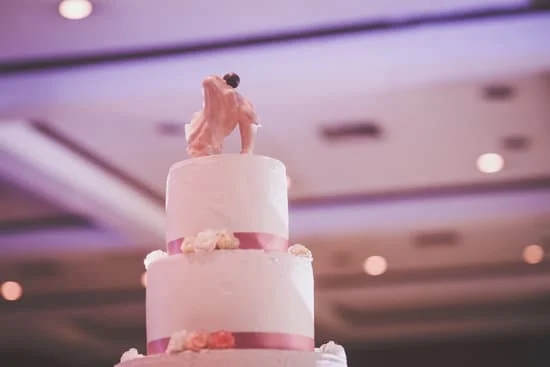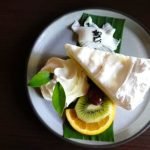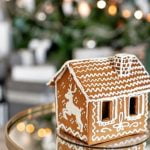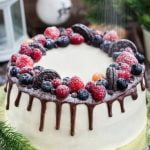Icing sugar plays a crucial role in elevating the visual appeal of cakes through decorative elements. Knowing how to mix icing sugar properly is key to achieving the desired texture and consistency for cake decoration. Whether you are a baking enthusiast or a professional pastry chef, mastering the art of mixing icing sugar can make a significant difference in the outcome of your creations.
Icing sugar, also known as powdered sugar or confectioner’s sugar, is finely ground granulated sugar mixed with a small amount of cornstarch to prevent clumping. It comes in different types, including regular icing sugar, icing sugar mixture (with added cornstarch), and superfine icing sugar for smoother results. Understanding the basics of icing sugar is essential before embarking on the mixing process for cake decoration.
To successfully mix icing sugar for cake decoration, you will need essential tools such as a sieve or sifter, mixing bowls, whisk or electric mixer, measuring cups, and spatula. Additionally, ingredients like vanilla extract, milk or water, and food coloring may be required depending on your desired outcome. These tools and ingredients are necessary for ensuring that your icing sugar is well-mixed and ready for decorating cakes in various styles and designs.
Understanding the Basics of Icing Sugar
Icing sugar, also known as powdered sugar or confectioner’s sugar, is a crucial ingredient in cake decoration. It is essential for making various types of icings, frostings, and decorations that add sweetness and beauty to cakes. Understanding what icing sugar is and its different types can greatly impact the outcome of your cake decorating endeavors.
What Is Icing Sugar?
Icing sugar is a finely ground sugar that has been powdered to create a smooth texture. It dissolves easily and is ideal for creating smooth icings and frostings without any graininess. The fine texture of icing sugar makes it perfect for delicate decorations and intricate piping work on cakes and cupcakes. Its ability to blend seamlessly with liquids like water or milk makes it a versatile ingredient in cake decorating.
Different Types of Icing Sugar
There are several types of icing sugar available in the market, each with unique characteristics that make them suitable for specific purposes. Some common types include:
- Regular Icing Sugar: This is the standard icing sugar used for most cake decorations and frostings.
- Fondant Sugar: Also known as fondant icing sugar, this type is specifically formulated for making fondant, a pliable frosting often used to cover cakes.
- Confectioner’s Sugar: Another name for icing sugar, confectioner’s sugar typically contains an added anti-caking agent to prevent clumping.
Understanding the differences between these types of icing sugar can help you choose the best one for your specific cake decoration needs. Learning about the basics of icing sugar sets a solid foundation for mastering how to mix it effectively for all your creative baking projects.
Tools and Ingredients Needed for Mixing Icing Sugar
Equipment Needed
When it comes to mixing icing sugar for cake decoration, having the right tools is essential. The basic equipment needed includes a mixing bowl, a whisk or electric mixer, a spatula, and measuring cups and spoons. It’s important to use clean and dry equipment to prevent any contaminants from affecting the icing sugar.
Ingredients Required
In addition to the equipment, you will need specific ingredients to mix icing sugar effectively. The main ingredient, of course, is icing sugar itself. Other common ingredients include flavorings such as vanilla extract or almond extract, liquid (water or milk), and sometimes corn syrup or light corn syrup. These additional ingredients can help adjust the consistency and flavor of the icing sugar according to your preference.
Tips for Success
To ensure successful mixing of icing sugar for cake decoration, make sure all your ingredients are at room temperature. This helps achieve a smoother consistency in the final product. Sift the icing sugar before mixing it with other ingredients to avoid any lumps or clumps in the mixture. Additionally, start by adding small amounts of liquid at a time when combining with the icing sugar to control the consistency easily.
By following these tips and ensuring you have all the necessary tools and ingredients on hand, you’ll be well-prepared to mix icing sugar effectively for your cake decoration needs. Now that you know what you need let’s move on to step-by-step instructions on how to mix icing sugar for cake decoration purposes.
Step-by-Step Guide on How to Mix Icing Sugar for Cake Decoration
Icing sugar, also known as powdered sugar or confectioner’s sugar, plays a crucial role in cake decoration. Knowing how to mix icing sugar properly is essential for achieving the right consistency and texture for your decorations. Whether you’re a beginner or a seasoned baker, mastering the art of mixing icing sugar can elevate the look of your cakes and desserts.
To mix icing sugar for cake decoration, you will need a few key tools and ingredients. The most important item is, of course, the icing sugar itself. You will also need a mixing bowl, a whisk or electric mixer, water or other liquid for thinning the mixture if necessary, flavorings or colorings for customization, and possibly some cornstarch to adjust the consistency. Having these essentials on hand will ensure that your icing sugar mixing process goes smoothly.
Now let’s dive into the step-by-step guide on how to mix icing sugar for cake decoration. Start by sifting the icing sugar to remove any lumps and achieve a smooth texture. Then gradually add in your chosen liquid while mixing continuously until you reach your desired consistency.
If the mixture is too thick, add more liquid; if it’s too runny, add more icing sugar. Keep adjusting until you have a smooth and spreadable icing that holds its shape when piped onto your cake. Practice makes perfect with this technique.
| Tool/Ingredient | Description |
|---|---|
| Icing Sugar | Main ingredient needed for mixing icing |
| Mixing Bowl | Container for combining ingredients |
| Whisk/Electric Mixer | Tools for blending icing to desired consistency |
Tips and Tricks for Achieving the Perfect Consistency
When it comes to cake decoration, achieving the perfect consistency for your icing sugar is crucial. The right texture can make all the difference in creating beautiful designs and flawless finishes on your cakes. Whether you’re a beginner or an experienced baker, there are some tips and tricks that can help you master the art of mixing icing sugar for cake decoration.
One key tip for achieving the perfect consistency when mixing icing sugar is to start with the right amount of liquid. Adding too much liquid can lead to a runny and thin icing, while too little can result in a thick and difficult-to-spread mixture.
It’s important to add liquid gradually, whether it’s water, milk, or any other liquid specified in your recipe, until you reach the desired texture. This way, you can easily adjust the consistency as needed without overdoing it.
Another helpful tip is to sift your icing sugar before mixing it with any liquids. Sifting helps remove any lumps or clumps in the sugar, resulting in a smoother and more evenly mixed icing. This step is especially important if you’re using confectioners’ sugar, as it tends to clump up easily.
By sifting the sugar beforehand, you can ensure that your icing will have a silky-smooth texture that’s perfect for decorating cakes. Additionally, using room temperature ingredients, such as butter or cream cheese, can also help achieve a smoother consistency when mixing icing sugar for cake decoration.
Different Methods for Mixing Icing Sugar
When it comes to mixing icing sugar for cake decoration, there are various methods that you can choose from depending on your preference and available equipment. Each technique offers its own set of advantages and can result in different textures and consistencies of icing. Here are some different methods for mixing icing sugar that you can explore:
- Hand Mixing: One of the most common methods for mixing icing sugar is by hand. This method requires a bit more elbow grease but allows you to have better control over the consistency of the icing. Simply place the icing sugar in a bowl, add any liquid ingredients gradually, and mix with a spoon or whisk until smooth.
- Stand Mixer: Using a stand mixer is a convenient way to mix icing sugar without much effort. Simply attach the paddle attachment to your stand mixer, place the icing sugar in the bowl, start at a low speed to prevent a cloud of powdered sugar, then gradually increase the speed as the ingredients combine.
- Food Processor: If you’re looking for a quick and efficient way to mix icing sugar, using a food processor can be a great option. Simply add the icing sugar and any other ingredients into the food processor bowl, pulse in short bursts until combined, then scrape down the sides as needed until smooth.
Each method has its own advantages and may work better depending on what type of texture you are aiming for in your cake decoration. Experimenting with different techniques will help you find which method works best for your needs and preferences when it comes to mixing icing sugar effectively for cake decoration. Remember to adjust the amount of liquid used based on your desired consistency and always keep an eye on achieving that perfect texture.
Troubleshooting Common Issues
When it comes to mixing icing sugar for cake decoration, there are common issues that may arise during the process. One common problem is lumps in the icing sugar, which can affect the smoothness and consistency of the mixture. To avoid lumps, it is essential to sift the icing sugar before mixing it. This simple step helps break down any clumps and ensures a smoother texture for your icing.
Another issue that may occur while mixing icing sugar is achieving the right consistency. If your icing is too thin or runny, you can add more sifted icing sugar gradually until you reach the desired thickness. On the other hand, if your icing is too thick, you can add small amounts of liquid (such as milk or water) to thin it out. It’s important to make adjustments slowly to prevent overcompensating and ending up with an inconsistent mixture.
Color consistency is also a key aspect when mixing icing sugar for cake decoration. If you’re using food coloring to tint your icing, ensure that you add it gradually and mix well after each addition. This will help you achieve a uniform color throughout your icing without any streaks or uneven patches. Additionally, using gel food coloring instead of liquid coloring can result in more vibrant and precise hues for your cake decorations.
| Common Issues | Solutions |
|---|---|
| Lumps in icing sugar | Sift the icing sugar before mixing to break down clumps |
| Consistency issues | Add more sifted icing sugar for thin mixtures and small amounts of liquid for thick mixtures |
| Color consistency problems | Add food coloring gradually and opt for gel food coloring for vibrant colors |
Creative Ways to Use Mixed Icing Sugar for Cake Decoration
Decorating cakes with mixed icing sugar can truly elevate the presentation and overall appeal of your baked creations. The versatility of icing sugar allows for endless possibilities when it comes to decorating cakes, making it a staple ingredient in every baker’s toolkit. Whether you are a novice in cake decoration or a seasoned pro, exploring creative ways to use mixed icing sugar can add a touch of magic to your desserts.
To inspire you in your cake decorating journey, here are some unique ideas and designs for using mixed icing sugar:
- Piping Designs: Use different piping tips to create intricate designs on your cakes. From delicate flowers to elegant swirls, piping designs with mixed icing sugar can add a beautiful finishing touch.
- Marbling Effects: Create stunning marbled effects by mixing different colors of icing sugar together. Simply drop dollops of colored icing onto the base layer and swirl them together for a mesmerizing pattern.
- Embossed Patterns: Experiment with embossed patterns by using stencils or textured mats on your cake surface before applying the mixed icing sugar. This adds depth and dimension to your decorations.
The key to achieving standout cake decorations lies not only in mastering how to mix icing sugar but also in letting your creativity shine through. Don’t be afraid to try new techniques, play with colors, and experiment with different tools to discover your unique style. Remember, practice makes perfect when it comes to cake decoration, so don’t hesitate to explore and push the boundaries of what you can create with mixed icing sugar.
Conclusion
In conclusion, knowing how to mix icing sugar for cake decoration is an essential skill for anyone aspiring to create beautiful and delicious desserts. By understanding the basics of icing sugar, having the right tools and ingredients, following a step-by-step guide, and incorporating tips and tricks for achieving the perfect consistency, you can elevate your cake decorating game to new heights.
Experimentation and practice are key when it comes to mastering the art of mixing icing sugar. Don’t be afraid to try different methods, explore various techniques, and troubleshoot common issues along the way. Remember that practice makes perfect, so keep honing your skills and refining your techniques to achieve the desired texture and look for your cake decorations.
Whether you are a novice baker or an experienced pastry chef, there is always room for creativity when using mixed icing sugar for cake decoration. Let your imagination run wild with unique ideas and designs that showcase your personality and style. The possibilities are endless when it comes to decorating cakes with beautifully mixed icing sugar. Happy baking.
Frequently Asked Questions
How Do I Use Icing Sugar to Decorate a Cake?
Icing sugar is commonly used to decorate cakes by creating a simple glaze or icing. To make icing, mix icing sugar with a small amount of liquid like water, milk, or lemon juice until you reach the desired consistency. Then drizzle or spread it on the cake.
What Can I Use to Mix Icing Sugar?
When mixing icing sugar, you can use a whisk, spoon, or hand mixer to combine it with other ingredients. It’s important to gradually add liquid to the icing sugar while stirring continuously to prevent lumps from forming. Adjust the consistency by adding more liquid if needed.
How Do You Decorate a Cake With Powdered Sugar?
Decorating a cake with powdered sugar can be done by using stencils or simply dusting the sugar over the top of the cake. Place a stencil on the cake and sprinkle powdered sugar over it, then carefully remove the stencil. For a more rustic look, sift powdered sugar over the entire cake for a light dusting effect.
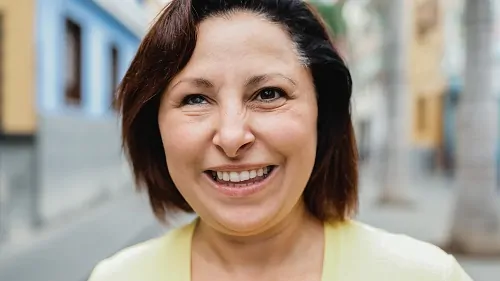
Welcome to our cake decorating blog! My name is Destiny Flores, and I am the proud owner of a cake decorating business named Cake Karma. Our mission is to provide delicious, beautiful cakes for all occasions. We specialize in creating custom cakes that are tailored specifically to each customer’s individual needs and tastes.

